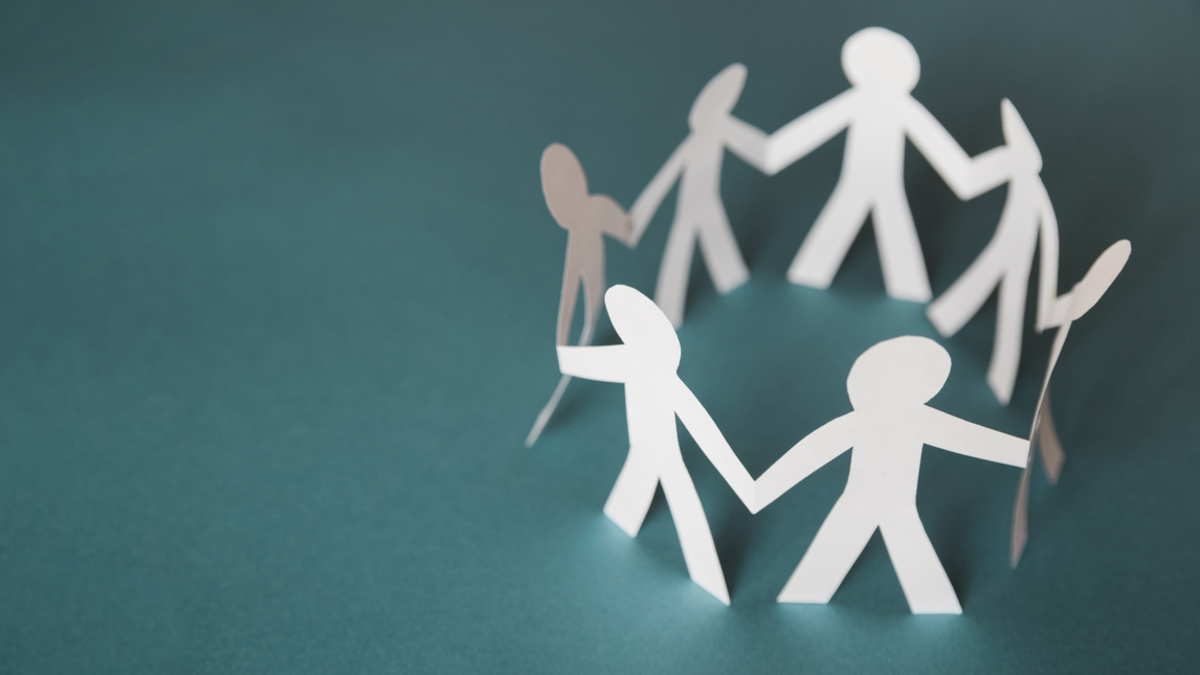Weak-willed. Immoral. Flawed. Deserving of punishment rather than help. There's no doubt that substance use disorders still carry a huge stigma — including, often among addicts themselves. The fact that somewhere between 40 and 60 percent of addicts who receive treatment relapse doesn't help. Perhaps addicts are simply destined to remain in the clutches of addiction forever? And perhaps it's their fault?

That whole paragraph would sound nothing short of ridiculous if we replaced "substance use disorder" with "high blood pressure" or "asthma". Though patients suffering from those two chronic illnesses have even higher relapse rates of between 50 and 70 percent, nobody would blame them if they experienced relapses, and even if they were told to "try harder" at changing their diet or adhering to their medications, they wouldn't be seen as moral failures.
What are peer support groups for addiction?
Peer support groups for addicts (also called recovery support groups, mutual-aid groups, or self-help groups) are settings designed to offer addicts in remission social support, with the goal of helping them stay clean and sober as well as building a meaningful life. Though doctors or therapists may attend some of these groups, they're not run by medical professionals but by other people who face substance abuse or behavioral addictions. They're an addition to science-based treatment, not a substitute — but can nonetheless be very powerful.
In the United States alone, over two million people attend support groups for addiction. They come in numerous forms. Some of the most popular ones include:
- Alcoholics Anonymous and its numerous offshoots — collectively referred to as 12-step programs. Though some secular groups exist, the core of the program is religious or at least spiritual in nature, and this approach works best for people who find comfort in that.
- Sober living — a residential approach in which addicts in remission live together with other addicts in remission in an environment free of alcohol and drugs.
- SMART Recovery programs — secular and non-spiritual groups based around the principles of cognitive behavioral therapy.
- Local support groups not affiliated with a broader organization, which can appear in numerous forms.
One size does not fit all — not only will the kind of group an individual would benefit from depend on the central tenets of that group, but also on the nature of an individual group. You may find that one AA group doesn't help you much, for instance, while one a town away with completely different people becomes one of the cornerstones of your sobriety. If a particular support group is a poor match, research has shown (completely unsurprisingly) that many addicts leave treatment. The core message here is to keep looking until you find a group that is just right for you.
Can a self-help group help you reach remission from your addiction?
Peer support groups are in no way a replacement for medical treatment, which can, depending on the addiction, feature:
- Outpatient or inpatient services to facilitate medically safe withdrawal, including monitoring and sometimes medications.
- Medical treatment for physical health problems associated with the addiction.
- A variety of psychotherapeutic approaches.
Nobody would suggest that you can reach remission simply by attending a support group, and people abusing substances that create physical dependence and cause potentially dangerous and even life-threatening withdrawal symptoms should especially never try this approach. Addicts who are newly in remission can, however, immediately begin to benefit from peer support groups during these difficult early stages, all while also receiving treatment from medical professionals.
Does attending a peer support group for addicts reduce your risk of relapse?
Countless addicts report that self-help groups helped them turn their lives around, helped them stay sober or clean, allowed them to share things they could never tell a doctor or psychologist, was crucial in their recovery, or even saved their life. It's hard to put a price on that.
However, research also shows that a significant minority of people attending 12-step programs are bothered by their focus on a higher power and the powerlessness of addicts, while some who attend secular groups will doubtlessly keenly feel the absence of a spiritual component. Overall, in one study, 20 percent of people who attended support groups reported that the experience had been harmful for them.
What that tells us isn't that peer support groups for addiction simply aren't helpful for some people, but rather that the group you choose to attend really matters. Addicts in early remission will be best served if they ask around for lists of different groups and their philosophies — something their doctor can help them with, as well as the internet — and keep looking until they find a self-help group that aligns with their personal philosophy and feels right.
- Photo courtesy of SteadyHealth
- www.nap.edu/read/5802/chapter/10
- www.drugabuse.gov/publications/media-guide/science-drug-use-addiction-basics
- onlinelibrary.wiley.com/doi/abs/10.1046/j.1360-0443.2002.00083.x
- www.tandfonline.com/doi/abs/10.1300/J020v24n01_04
- onlinelibrary.wiley.com/doi/abs/10.1002/casp.2388
- www.ncbi.nlm.nih.gov/pmc/articles/PMC5047716/
- www.ncbi.nlm.nih.gov/pmc/articles/PMC2095128/

